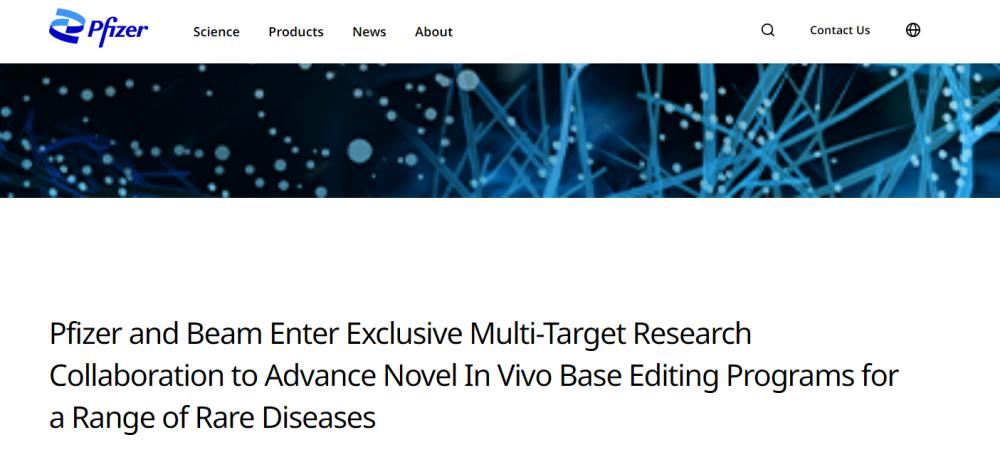On Monday, Pfizer announced on its official website that it has entered into a four-year exclusive research collaboration with Beam Therapeutics ("Beam") focusing on in vivo base editing programs for rare genetic diseases such as liver, muscle and central nervous system.

(Source: Pfizer)
Initially, Beam will receive an advance payment of $300 million, and will be eligible for milestone payments of up to $1.05 billion in the future, with potential partnership projects costing up to $1.35 billion. In addition, Beam has the option to enter into a global co-development and co-commercialization agreement for any of the projects it works with, receiving a 35% royalty from the project's global net sales. The initial duration of the cooperation is four years and can be extended to one year.
Beam is focused on developing a new class of targeted drugs using "lipid nanoparticle" (LNP) base editing technology that targets only a single base in the genome and does not cause double-strand breaks in DNA. Compared to traditional gene editing methods, this method is more precise, more effective, and reduces the potential risk of gene editing.
Mikael Dolsten, Pfizer's chief scientific officer, said in a press release, "We believe mRNA and LNP technologies have a strong potential to address the needs of patients, as evidenced by our mRNA/LNP-based COVID-19 vaccine." ”
"We see our collaboration with Beam as an opportunity to advance the next generation of gene-editing therapies, an exciting frontier of science that has the opportunity to help patients with rare genes cure disease," Dolsten said. ”
John Evans, CEO of Beam, said, "We are excited to partner with Pfizer, a global leader in the design, development and commercialization of new drugs. We are committed to ensuring that these potentially life-changing technologies are used in the widest possible applications, and our leading medical platform has evolved considerably over the past few years. ”
Evans said: "This collaboration will provide a unique opportunity to create a transformative base editing program. We look forward to working with Pfizer to advance these technologies and expand our impact among patients." ”